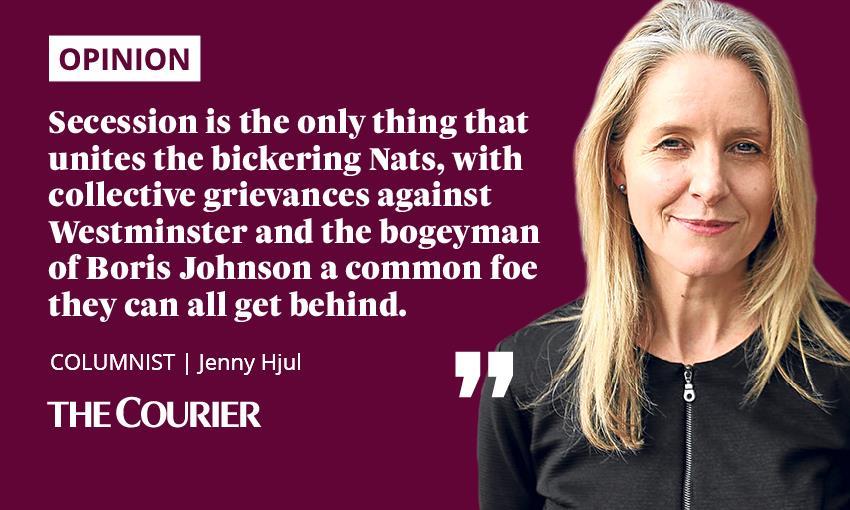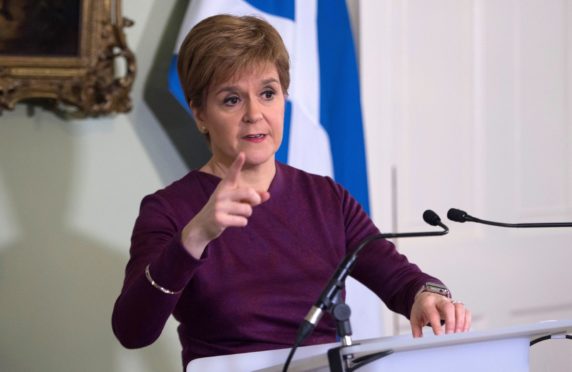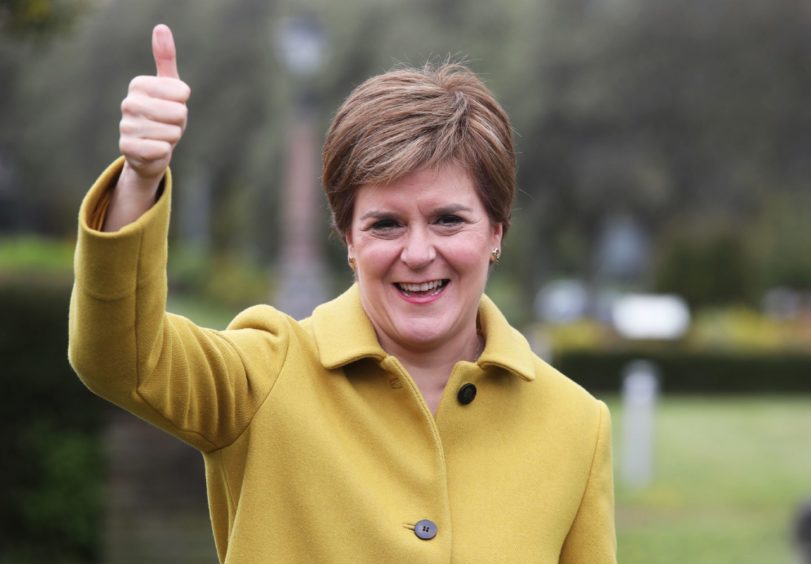Nicola Sturgeon is to relaunch her campaign for a second independence referendum at the SNP party conference next month, following virtual silence on the constitutional question since May’s election.
According to a leaked draft agenda, party members will be asked to back the new separation push, which will reportedly include plans for a hard border with the rest of the UK.
Legislation for a referendum would be introduced only after there is a “clear end” to the current health crisis, but there seems to be little doubt that the First Minister intends to make the separation debate her priority.
Has there ever been a worse moment to reignite the referendum battle in Scotland?
We may be past the peak of the pandemic, with the successful UK vaccine roll-out radically reducing severe illness and mortality.
But autumn is likely to bring increased pressure on the NHS, not least from the daunting backlog of patients whose treatments have been put on hold for more than a year.

Further collateral damage from lockdowns and from the ongoing self-isolation madness, which is continuing to hit essential services, including health provision, will slow down the nation’s post-Covid rehabilitation.
Scotland is already in a dark place health-wise, hitting the headlines last week for its appalling record on drug deaths, which outnumber those of all other European countries.
The SNP has been in power for 14 years and shown itself not up to the task of tackling this blight on Scotland, which strikes hardest in the country’s most disadvantaged constituencies.
In its draft conference agenda, the party makes lavish promises for more generous state pensions and “jobs for all’”schemes. But does anyone believe this government can deliver on grandiose welfare initiatives when it has not even begun to find a solution to the more immediate drugs disaster?
Nicola Sturgeon’s real fights are internal
Besides its dismal scorecard on domestic policy, the SNP’s governance of Scotland continues to be compromised by the internal war between its various factions.
A fresh row has exploded this week over the appointment of a complaints officer with a background of dishing out abuse to senior party figures.
The SNP MP Joanna Cherry – already a thorn in the First Minister’s side – said Ricky Taylor had accused her of transphobia, while other Nationalist stalwarts have suggested he is unlikely to be neutral, “doesn’t inspire confidence” and should be dismissed.
Nicola Sturgeon’s inability to restore peace in the ranks reflects a void of leadership, which also explains her eye-off-the-ball approach to the daily business of government.
The new @theSNP complaints officer @RickyDJTaylor has a history of targeting me & calling me transphobic for my lawful gender critical views. How did he pass vetting? https://t.co/of6vdNAgKb…https://t.co/of6vdNAgKb…https://t.co/of6vdNAgKb… pic.twitter.com/ezXPrtIVBv
— Joanna Cherry QC (@joannaccherry) July 31, 2021
What she is skilled at, though, is politicking, and focusing attention back on to the constitution in the middle of a major internecine skirmish will, she hopes, bring a truce of sorts.
Secession is the only thing that unites the bickering Nats, with collective grievances against Westminster and the bogeyman of Boris Johnson a common foe they can all get behind.
Michael Gove’s calculated intervention this week, saying that Scotland could have a second vote on independence but only if it was the “settled will” of voters, has naturally stoked the SNP’s fires.
With support for separation in decline, there is no such consensus among Scots, and thus no chance of Gove’s criteria being met any time soon.
Nicola Sturgeon eyeing short-term survival
What Nicola Sturgeon really needs in the present problematic political landscape is a massive distraction, and distractions don’t come much more massive than a divisive plebiscite.
There is every chance she will be prevented from holding one – Gove said nothing to suggest London’s stance on this has changed – but the political fight for constitutional upheaval will divert criticism of her regime towards fury at the Conservative government, at least among independence supporters.
It is a ploy that may be good for her survival, in the short term, but it is of no benefit for Scotland to be thrown into more uncertainty when the Covid recovery has yet to begin.
The SNP’s cavalier talk of introducing trade barriers with England to “reinvigorate” the economy – reportedly in its conference agenda – is about as convincing as its currency plans were in the 2014 referendum.
Sturgeon admitted during May’s election campaign that the party had not conducted an economic analysis of its case for independence, and it is unlikely that its wheeze to destroy Scotland’s biggest market – England – has been properly thought out.
Ian Murray, the shadow Scottish secretary, said the idea that creating a hard border with England would be good for Scotland was “offensive” and would build barriers “when we should be bringing communities together”.
Even if Sturgeon’s latest independence blueprint comes to nothing, the fact that she is prepared to plunge Scotland into a new bout of national navel gazing will undermine business optimism and drive away investors.
And it will deaden Scotland’s efforts to emerge not just from the Covid fallout, but from more than a decade of Nationalist misrule.

